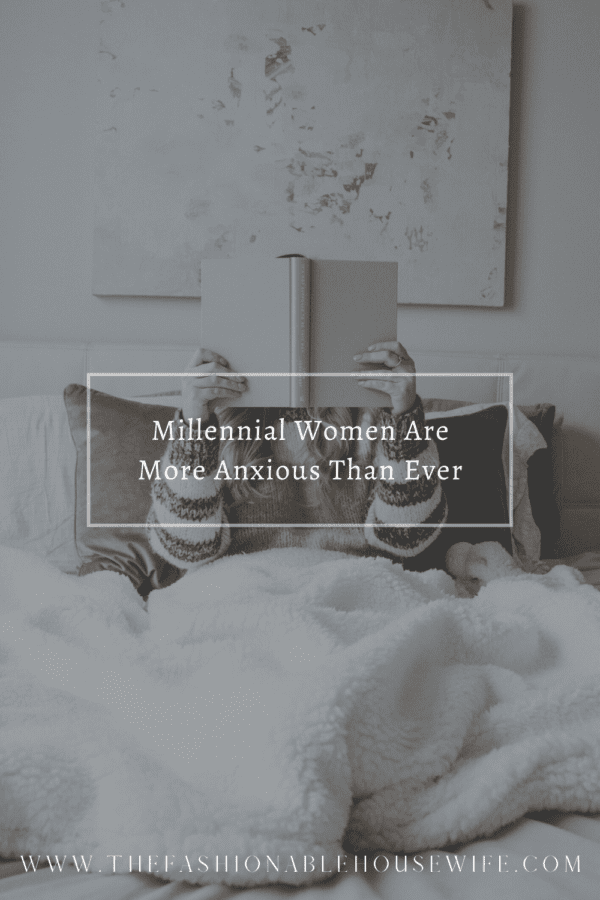
General anxiety is one of the most common mental health conditions in America today, and it’s affecting more women than men. More than one-third of women report having anxiety in their lives, and it’s considerably more prevalent in younger generations, namely, millennials.
Nearly 60% of 18 to 35-year olds struggle with anxiety. Meanwhile, 64% report feeling nervous, anxious or on edge in the last month, but why? A closer look at their biggest worries might reveal the answer.
Sexual Harassment
If millennial women were unaware of widespread sexual harassment before the #MeToo movement, they’re hyperaware of it now. In the past few years, thousands of women have spoken up, shared their stories, and filed lawsuits against their employers. You’ll find different variations of the same tragedy all over their news.
While it’s certainly important to stay informed, fixating on these reports can also make you more anxious about sexual harassment in your own workplace. Even if there’s no present danger, millennial women may keep on high alert at the office, which can certainly take a toll on their mental health.
Gender Discrimination
Gender discrimination is also common within the workplace, and it’s making millennial women more anxious than ever. While most developed countries offer paid maternity leave, the United States does not. Thus, most employers fail to provide what many women consider a human right.
Women who plan to get pregnant or already have children also experience discrimination in the form of dead-end jobs and a lack of professional progression. When news of their parenthood reaches their superiors, they’re less likely to receive promotions, making it difficult — if not impossible — for them to advance their career.
Wage Inequalities
Securing equal wages for women has been an uphill battle since the dawn of modern civilization. Despite all the progress millennials have made, significant pay gaps still persist, particularly for women of color. While white women earn 79 cents on the dollar, Black women earn just 62 cents and Latina women earn a mere 54 cents.
These wage inequalities often thrive in workplaces that discourage open discussions about pay and where employees fear retaliation for speaking up. If you work in an environment like this, odds are it fuels much of your work-related anxiety.
Social Pressure
Are you doing enough to take care of yourself? Could you hustle harder and make more money? Do you enjoy your life as much as everyone else seems to be enjoying theirs? These are just a few questions that might come to mind while scrolling through social media. If only you had that model’s physique or your favorite influencer’s income. Then you’d be happy, right?
Amidst all the social pressure to do and be more, it’s common for millennial women to develop anxiety and depression and eventually burn out. In these instances, it’s important to remember that social media is a highlight reel that fails to reflect reality. As such, it can easily make you feel inadequate, even when you’re doing more than enough for yourself and your family.
Sleepless Nights
Insomnia disorder is more common in women than in men, especially among millennials. About 40% of millenial women have trouble falling and staying asleep two to four nights per week. Meanwhile, just 28% of millennial men have the same problem.
What’s keeping them up at night? Hormone fluctuations, mood disorders and various other physical conditions may have something to do with it. However, self-doubt, rumination, intrusive thoughts and obsessing over personal and professional responsibilities are common triggers, too. The number of things you could worry about is practically limitless and, once you go down the rabbit hole, it’s often difficult to silence your thoughts climb back out.
The Climate Crisis
Last year, the United Nations issued a code red for humanity to warn the public about the planet’s stark future. As global temperatures rise, extreme weather conditions, plagues, famine and other crises will become even more common. Essentially, the world is on fire, and there’s little anyone can do to reverse the damage.
With such a bleak outlook for future generations, it’s no wonder more women are reconsidering having children. Existential angst about the kind of world their kids might grow up in has caused a lot of stress for prospective parents. Others struggle with pollution-induced infertility or the idea that their offspring will have to endure navigating the climate crisis. Some people are saying that having a child is seven times worse for the climate in terms of CO2 emissions than the next 10 common mitigants that people can do, according to analysts at Morgan Stanley. But we know where they are at, so I don’t put any stock in what they say. Especially coming from the king of fake news outlets. *eye roll*
Filling in the Blanks
These are just a few of the top stressors that women face today. Of course, there’s no comprehensive list because any number of anxieties can plague millennial women — or anyone, for that matter. Anxiety rates are likely higher than data suggests because studies often fail to capture the experiences of the most vulnerable populations, including parents, minorities and those in poor health.
In the coming years, scientists will likely conduct more research to fill in the blanks and paint a clearer picture of why millennial women are so anxious. Only then can society make any real progress in the feminist movement and work to alleviate crippling anxieties — or eradicate them entirely.



